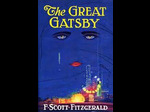Pushing Ice - Alastair Reynolds

Permalink - Comments - Tags: books
Fear: Trump in the White House - Bob Woodward

Permalink - Comments - Tags: Books
Writing Great Fiction - Lecture Three Exercise
The writing for this lecture was to take the styles in the following three novels and apply them to a passage from the others:
- - The Great Gatsby - First person account.
- - Mrs Dalloway - Third person stream of consciousness.
- - The Maltese Falcon - Third person, literal observation.
“Now, don’t think my opinion on these matters is final,” he seemed to say, “just because I’m stronger and more of a man than you are.” We were in the same senior society, and while we were never intimate I always had the impression that he approved of me and wanted me to like him with some harsh, defiant wistfulness of his own.
We talked for a few minutes on the sunny porch.
“I’ve got a nice place here,” he said, his eyes flashing about restlessly.
Turning me around by one arm, he moved a broad flat hand along the front vista, including in its sweep a sunken Italian garden, a half acre of deep, pungent roses, and a snub-nosed motor-boat that bumped the tide offshore.
“It belonged to Demaine, the oil man.” He turned me around again, politely and abruptly. “We’ll go inside.”
My Version“I’ve got a nice place here,” Tom said as his eyes enumerated each feature of garden, lawn and shore, pleased how the magnificent view was presented in the afternoon glow. He liked to impress his guests, but wondered at his eagerness for the admiration of this particular man. Nick was unimpressive in almost every way, at least in Tom's estimation, and yet he found he valued his company, perhaps even his friendship?
Nick watched the restless display with some comprehension and allowed himself to be guided, not impolitely, though certainly forcefully, through a conversation on the virtues of Tom's domain.
Tom, satisfied he had established his preemminance, abruptly turned and guided the two of them inside.
"It belonged to Demaine, the oil man." Tom said before passing into the high ceilinged hallway. Nick assumed he should know who that was and nodded.
My second attempt was taking the third person stream of consciousness of Mrs Dalloway and attempting the impersonal third person literal style from the Maltese Falcon:
Original SceneShe would have been, in the first place, dark like Lady Bexborough, with a skin of crumpled leather and beautiful eyes. She would have been, like Lady Bexborough, slow and stately; rather large; interested in politics like a man; with a country house; very dignified, very sincere. Instead of which she had a narrow pea-stick figure; a ridiculous little face, beaked like a bird's. That she held herself well was true; and had nice hands and feet; and dressed well, considering that she spent little. But often now this body she wore (she stopped to look at a Dutch picture), this body, with all its capacities, seemed nothing--nothing at all. She had the oddest sense of being herself invisible; unseen; unknown; there being no more marrying, no more having of children now, but only this astonishing and rather solemn progress with the rest of them, up Bond Street, this being Mrs. Dalloway; not even Clarissa any more; this being Mrs. Richard Dalloway.
Bond Street fascinated her; Bond Street early in the morning in the season; its flags flying; its shops; no splash; no glitter; one roll of tweed in the shop where her father had bought his suits for fifty years; a few pearls; salmon on an iceblock.
"That is all," she said, looking at the fishmonger's. "That is all," she repeated, pausing for a moment at the window of a glove shop where, before the War, you could buy almost perfect gloves. And her old Uncle William used to say a lady is known by her shoes and her gloves. He had turned on his bed one morning in the middle of the War. He had said, "I have had enough." Gloves and shoes; she had a passion for gloves; but her own daughter, her Elizabeth, cared not a straw for either of them.
Not a straw, she thought, going on up Bond Street to a shop where they kept flowers for her when she gave a party. Elizabeth really cared for her dog most of all.
My VersionA thin, dignified woman moved from shopfront to shopfront along Bond Street. The grandure of the flags that adorned each was not reflected in the shops themselves. The lady, for that is clearly what she was, upright and deliberate as she moved up the street, considered a roll of tailor's tweed as she passed. Despite her careful manner she was clearly enjoying herself, her pointed face moving quickly to take in each modest display.
Glancing from the fishmongers, with its forlone salmon presented on a block of ice, towards a glove shop. She paused and looked, slightly wistful, on the pitiful spread of gloves, much diminished after four years of war. Her composure seemed to slip and she muttered to herself 'That is all ... that is all', barely audible over the noise of the street.
Permalink - Comments - Tags: Stories
The Great Gatsby - F. Scott Fitzgerald

Permalink - Comments - Tags: Books
Writing Great Fiction - Lecture Two Exercise
Lecture two from Writing Great Fiction: Storytelling Tips and Techniques is about evocation.
Based on an exercise from John Gardner's The Art of Fiction we are supposed to write a passage describing a building, a landscape or an object from the point of view of a parent who's child has just died. All you're allowed to do is describe the object without mentioning the child, the parent or death. Invoke the feeling of loss and grief without mentioning either.
After a couple of abortive tries where I eventually mentioned one or all, I came up with this:
The swingset was tiny. Much too small for an adult. The worn rubber seat had two leg holes and a pink plastic strap across the front. The purple metal frame was faded and chipped, but you could still make out capering, grinning figures along its length. Under the seat was a muddy puddle, the center of a trail of scuff marks. Footprints staggered and skipped at the edge of the puddle and into the dust beyond. A gust of wind rippled the water and the hinges squeaked as the rubber harness twisted slowly. The wind died and there was silence.
Exercise from Lecture Three >>
Permalink - Comments - Tags: Stories
[First Page] [Prev] Showing page 3 of 10 pages [Next] [Last Page]
 Mastadon
Mastadon Feeds
Feeds Contribute
Contribute